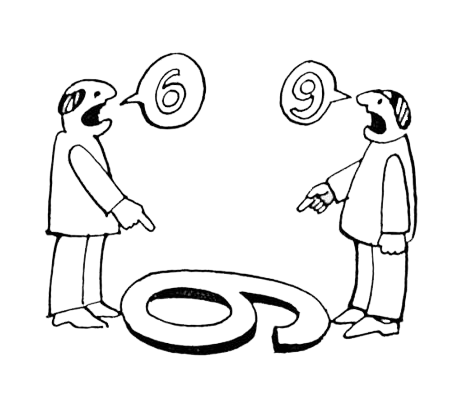President Message

“The truth is…”
“What is really going on here is…”
“The Reality is…”
…are all phrases we use to make sense of the world around us. They are lies.
None of us knows the objective truth or reality. Our brains are just unable to perceive every detail and each fact. All our conclusions, therefore, are based on incomplete data. We do not receive, collect, organize, and process data the way a computer does. Our brains view the world through the lens of our past experiences, our present conditions, and our future predictions.
Take the classic example from law school: If four eye-witnesses standing on the corners of an intersection observe a car crash, they will each give different accounts of what happened. Taken together, some facts emerge as more likely true than not, but each person perceived the event differently. Perhaps one was on the phone at the time and distracted by the conversation. Perhaps another was crying from a recent breakup. Maybe the third person had recently been in a similar accident and was acutely aware of the traffic, and so on.
Professor Karl E. Weick is an organizational theorist who brought the concept of sense-making into our thinking about organizations. He describes it as, “the ongoing retrospective development of plausible images that rationalize what people are doing.” But let’s just say that sense-making is the way we always sacrifice accuracy in favor of understanding. This explains why we often adopt the most plausible justifications even though they are inaccurate (“That westbound car must have run the red light because it was going so fast…” or “That driver must have been distracted because his music was playing so loudly…”) It is far easier to form an answer than it is to live with the uncertainties of an open question. Sense-making creates space in our limited brains. Sense-making abhors chaos and seeks order.
So how does this apply to the credit union? How can it apply to the group gathered around the Holiday table? Each of us is an eyewitness to the shared experience; each of us possesses some valuable information that the others do not have. And this why increasing our commitment to Diversity, Equity, and Inclusion matters. Whether in the Board Room or the Dining Room, having more eyewitnesses can reduce uncertainty and synthesize multiple interpretations into a more unified and shared perception of reality. Consider making space for the lesser-heard voices at your next planning session. When your cousin starts spouting off about politics or religion as she helps herself to the last helping of your favorite dish, take a sip of water and consider what may shape her reality instead of firing off an angry response.
One small word stands in the way of unlocking the full value of DEI: ego. As humans, we convince ourselves that ours is the true reality. We instinctively seek to justify our past and validate the sense and meaning we have made of the world …and we judge others by comparing them to that sense and meaning. This is a dangerous proposition! On the other hand, when we embrace the idea that our sense of the truth – of reality – is inherently inaccurate and incomplete, we make space for the other eyewitness to help form a larger, “more single” understanding of reality.
So, as the holidays ramp up and the year winds down, let us all, as Professor Weick puts it, set our egos aside and argue as if we are right but listen as if we are wrong.
As always,
Bruce
Listen to the Jimi Hendrix song If 6 Was 9

